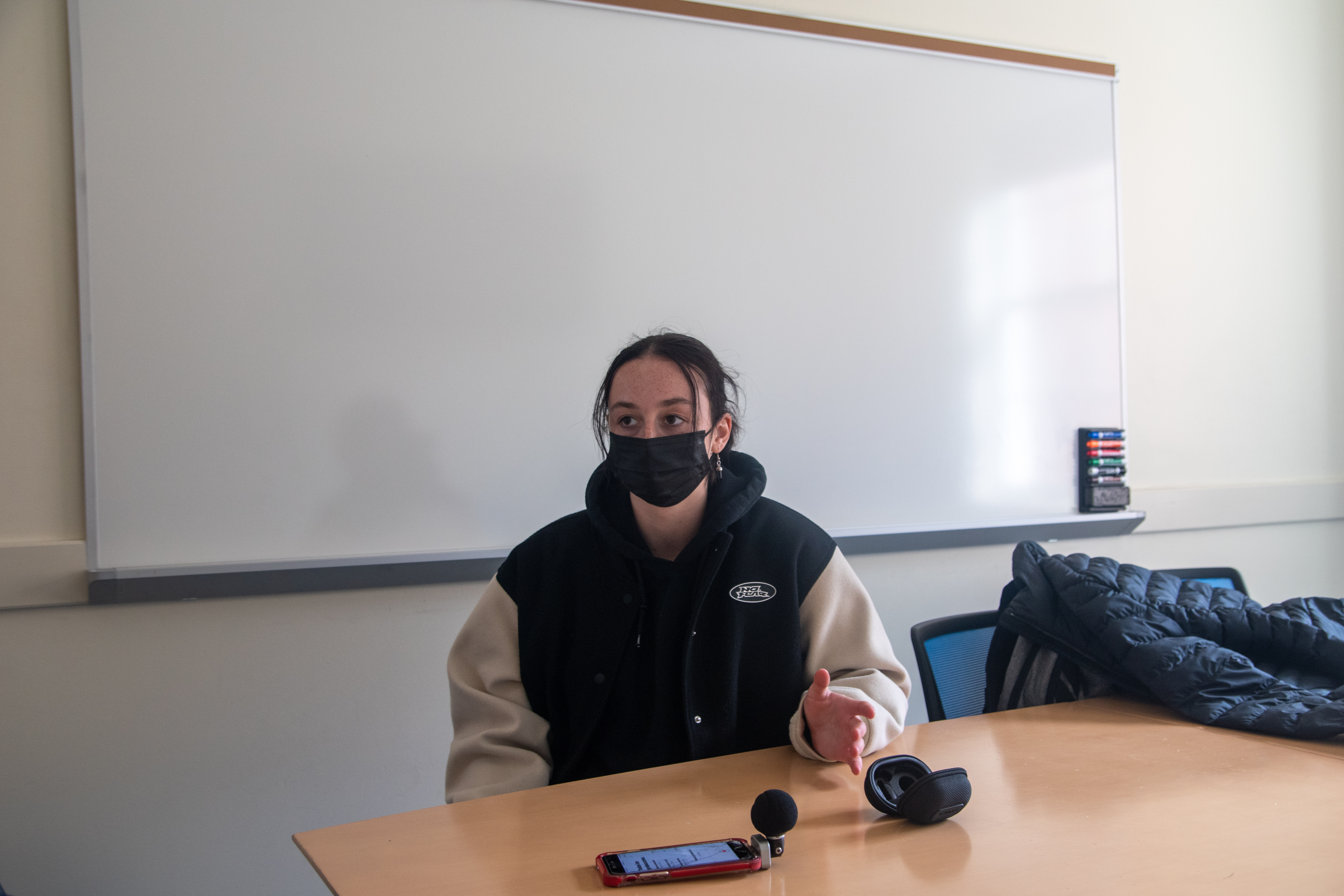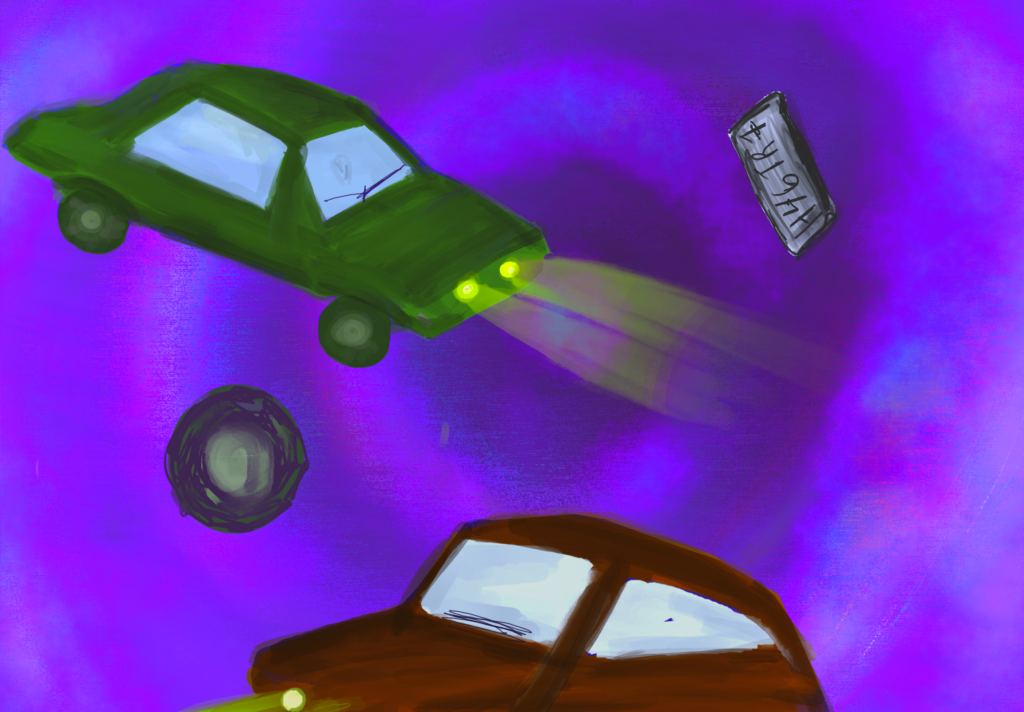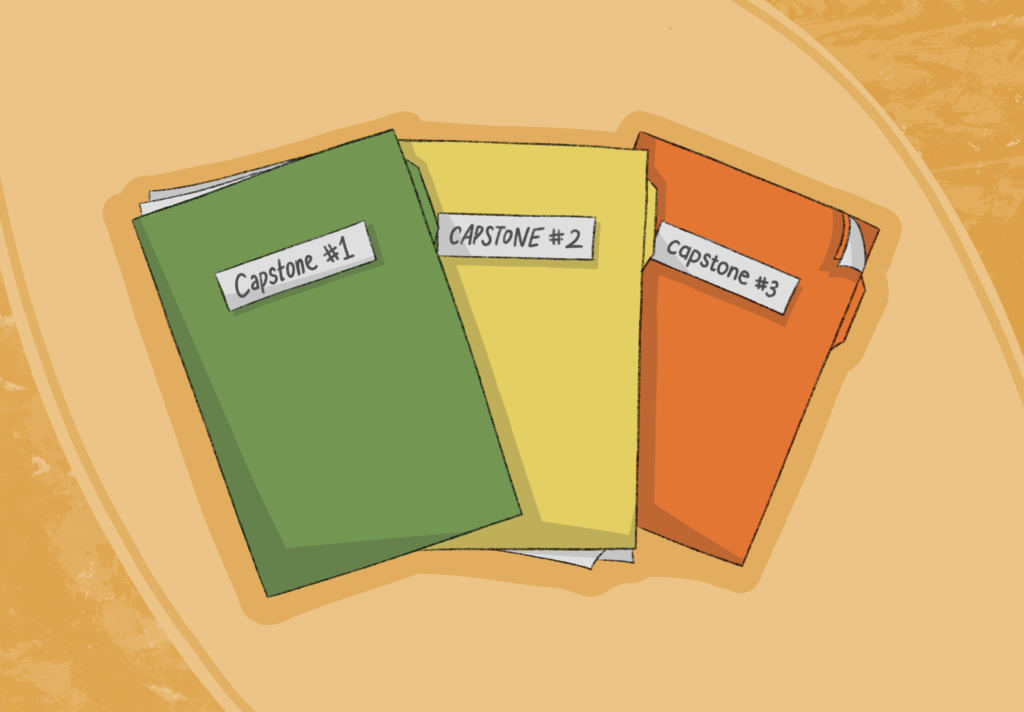
Photo by Garrett Curtis ’24/The Choate News
In December of 2021, Ava Gizzie ’23 created her own podcast called anthroposcreen extinctions where she speaks with peers on topics that matter to them in a thoughtful, introspective way. As of now, a few months into the project, Gizzie has put out four episodes on topics ranging from communism to religion, and multiple Choate students have had the opportunity to be on the podcast.
Gizzie’s decision to create a podcast came from a friend’s suggestion. “I’ve always been into doing podcasts and recording … so I thought it was a great opportunity,” she said. The podcast’s current name is based on Gizzie’s yearlong biology project on the Anthropocene Extinction, but she modified it to “anthroposcreen” to frame the podcast as a way to “get off technology and go out into the world.” Since anthroposcreen extinctions is still young, Gizzie has not come up with a specific purpose yet; however, its premise so far has been having “introspective, analytical, and self-actualized” conversations with her peers, according to the podcast’s description.
Through her podcast, Gizzie is able to share a unique perspective on any given topic with her listeners. On a personal level, she expands her own horizons by learning about what her peers have to say. “There is an opportunity for both parties to get involved with something that is not typical in the Choate curriculum,” Gizzie said. Compared to traditional extracurriculars like athletics or arts, anthroposcreen extinctions involves an unlimited number of disciplines.
Gizzie does not have a set schedule for the podcast; instead, she records episodes whenever it seems feasible. She is the one to approach others and invite them on the podcast, and so far she has recorded four episodes with three of her friends at Choate. In the second episode, she hosted Mwendwa Daisley ’23 to discuss Seven-Day Adventism, a form of Christianity. “A lot of the topics discussed are philosophical questions and thought-provoking things that would make a great podcast,” Daisley said when asked to explain why he was interested in being on the podcast. In terms of deciding on a topic, Gizzie strives to “do episodes with people on topics that they’re passionate about” in order for their enthusiasm to shine through.
In preparation for episodes, Gizzie creates guiding questions and general themes, though “the conversations are more free-flowing” and dependent on what her guest wants to talk about. While she had to do some audio editing for the first episode, Gizzie generally makes minimal edits. “I just make sure that the sound is okay and there’s not too much static, but I don’t edit any words out,” she explained.
According to Gizzie, this project has not been too challenging. “It’s not a difficult project in any way, and it was something that I really wanted to do and am passionate about on the side,” she said. Generating a larger listener base is always a goal to strive for, but creating the podcast itself has proved to be straightforward.
Going forward, Gizzie is looking to put out more episodes of her podcast and expand her listening base. When asked about how he would recommend the podcast to others, Daisley said, “The one thing about this podcast is that it’s things that help you experience the world in a different way and things that you actually take away.” Gizzie’s main strategy to attract more listeners is through word of mouth as opposed to social media.
Gizzie’s work with anthroposcreen extinctions has allowed her peers to share something meaningful with a broader audience. Listeners are able to learn about a topic that is likely foreign to them, and the seat is open to anyone with something meaningful to discuss. As Gizzie put it, “I and the other party get to broaden our horizons, and people get to listen in on that.”




